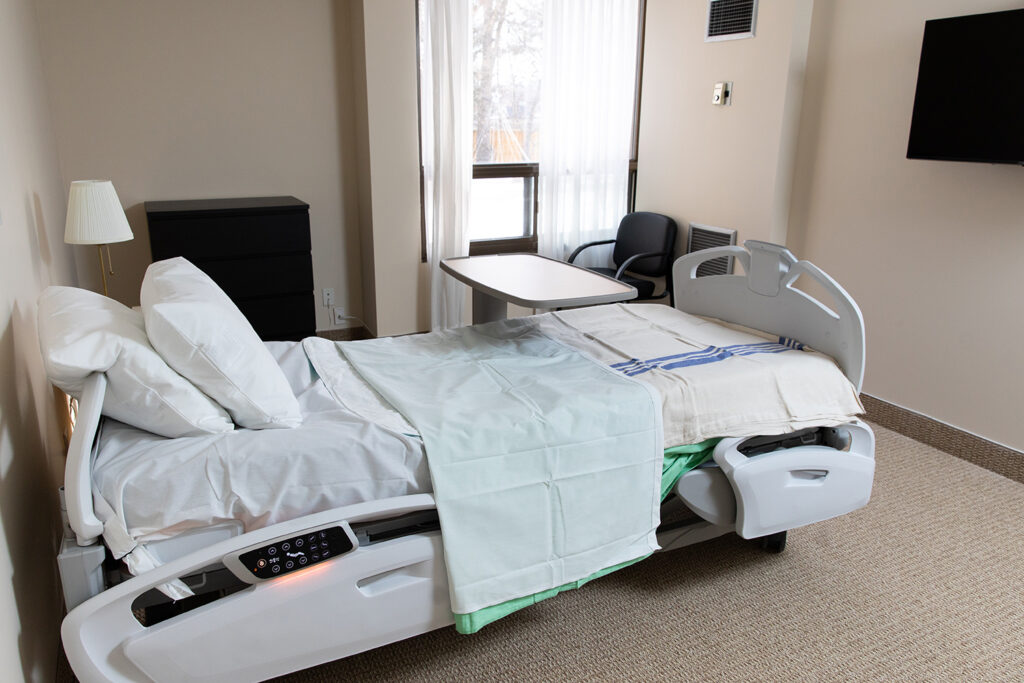How Unity Health is partnering on transitional beds to alleviate system pressures

Unity Health and Bayshore support 73 transitional care beds at Weston Gardens and Cedarbrook, which are designed to bridge the gap between hospital care and long-term care settings or home.
Unity Health Toronto and Bayshore HealthCare, a national home and community care provider, have teamed up to support 73 transitional care beds for individuals moving from acute hospital care to long-term care, and in some cases back home.
The collaboration provides specialized support for patients who no longer require the hospital-based care offered at Unity Health’s three hospital sites, but still need medical attention and rehabilitation to regain their strength and abilities.
The transitional care beds, located at Weston Gardens and Cedarbrook, are designed to bridge the gap between hospital care and long-term care settings or home, offering a tailored environment where patients can focus on regaining their autonomy. The program aims to enhance patient recovery by offering physical therapy and other vital services in a setting that promotes independence and prepares them for a smoother transition back into the community.
Sign up for the Unity Health Toronto newsletter, a monthly update on the latest news, stories, patient voices and research emailed directly to subscribers. If you haven’t subscribed yet, you can do that by clicking here.
Sharleen Ahmed, Senior Clinical Program Director for Seniors Health and Ambulatory Care at Unity Health, says the partnership has helped to alleviate capacity pressures on the hospital while ensuring patients receive the care they need to improve their quality of life.
“The partnership first grew from the COVID-19 pandemic when Bayshore and Providence Healthcare, our hospital site that specializes in rehabilitation, seniors and long-term care, connected to talk about transitional care and how to get patients who didn’t need to be in hospital anymore to a new destination,” says Ahmed. “Even though we’re out of the pandemic, space and capacity in hospitals remains a pressing issue and it’s something we’re working to address through this collaboration.”
While the team at Bayshore provides direct clinical care, the collaboration has involved a variety of teams at both organizations around infection prevention and control, patient experience, quality, and others, to align practices.

“Our care team includes a clinical manager who is a trained nurse, supported by nurses and personal support workers. Additionally, we have a comprehensive rehabilitation team consisting of a physiotherapist, physiotherapy assistants, and access to social work, occupational therapy, and speech language pathology,” says Stacey Grammick, Regional Director, Transitional Care at Bayshore.
“Patients may stay with us anywhere from two days to over two years, depending on their long-term care choices.”
Bayshore provides quarterly patient experience surveys and reports to Unity Health and the feedback has been positive. The transitional care units have enabled withdrawn and frail patients to engage in physiotherapy and recreational activities, including innovative virtual reality programs, says Grammick. The units also support emotional and social improvements, fostering new friendships and independence in daily activities.
Ahmed attributes the success of the partnership to open, two-way communication.
“I think that has been a big part of the success – open communication and working collaboratively,” Ahmed says. “In instances where Unity Health can provide more intensive medical guidance or referrals, we communicate and work together with the goal of supporting people to thrive in the transitional care setting, and ultimately long-term care, and avoid having people in the hospital who don’t need that level of care.”
By Danielle Pereira. Photos by Katie Cooper.
